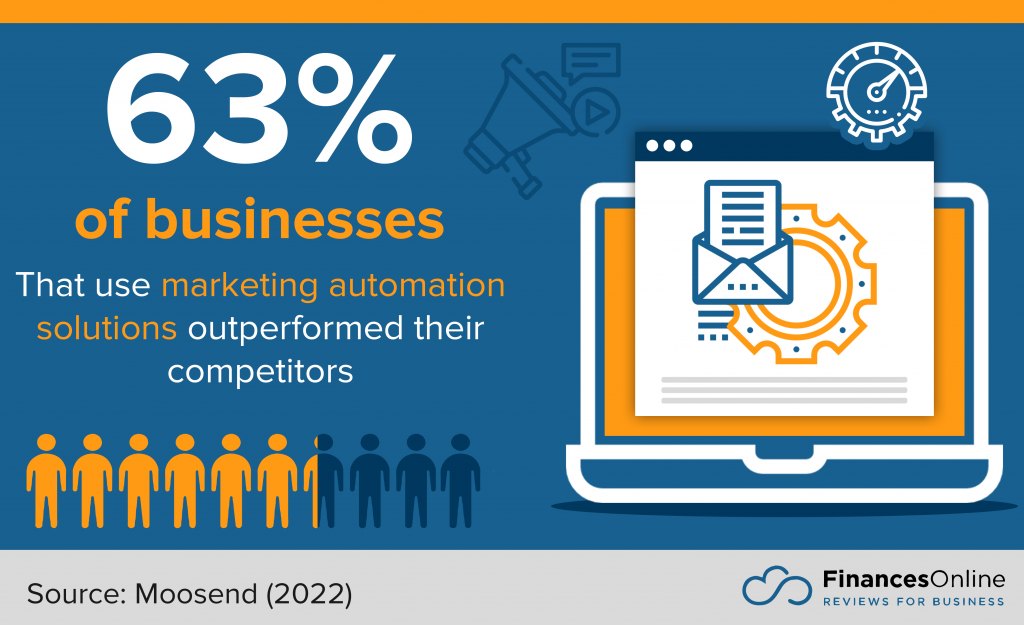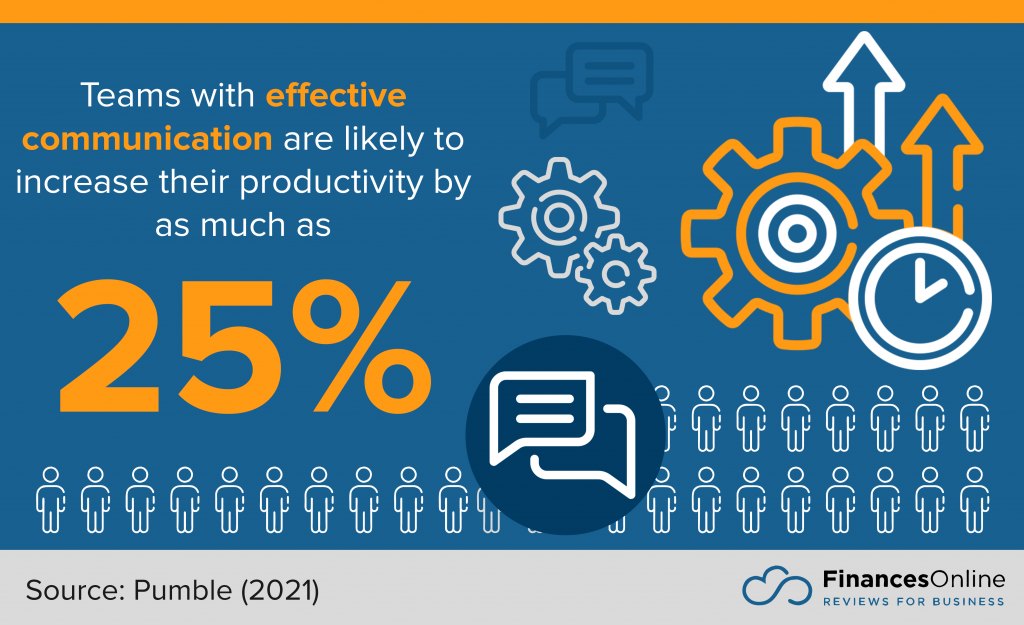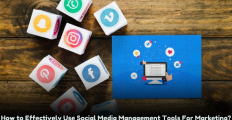The best marketing software strategy is all about getting the right tools for automating various marketing processes as part of managing your marketing campaigns. This is especially vital if you are campaigning on multiple channels where manual handling would prove very difficult if not impossible.
Business owners face plenty of tough challenges when it comes to forming a digital marketing software strategy. Ever since the pandemic, it has become increasingly imperative for businesses to strengthen their online marketing strategies and attract the attention of a growing number of online consumers. With so many competitors in the digital marketplace, establishing a unique brand and standing out among other businesses have become of the utmost importance for businesses to thrive.
All these pain points and challenges can be difficult to overcome without the right marketing software strategy or proper solution to help you. In this article, we will outline the best marketing software strategy you can use to maximize the potential of your marketing campaign and optimize your processes. We will also expound on other aspects of marketing software, including its key features, benefits, and some examples.

Best Marketing Software Strategy Table of Contents
As the COVID-19 crisis unfolded, the marketing landscape underwent some irreversible changes that impacted nearly every economy, business, and customer worldwide. With the pandemic causing major disruptions and affecting consumer behavior, businesses and marketing teams had to rethink their strategies and implement new methods that can strengthen their marketing efforts.
According to the annual Salesforce State of Marketing report, 44% of B2B marketers had to completely change their marketing mix since the pandemic began. This was to meet new challenges in marketing and the changing demands and behaviors of online consumers. Brick-and-mortar stores were particularly affected as well, having to migrate their business completely online and rethink their cloud software marketing strategy.
Extent to Which Marketers Say their Marketing Channel Mix Has Changed Since Before the Pandemic
Marketers who say their marketing mix has completely changed: 44%
Marketers who say their marketing mix has completely changed
44%Marketers who say their marketing mix has somewhat changed: 45%
Marketers who say their marketing mix has somewhat changed
45%Marketers who say there is no change in their marketing mix: 11%
Marketers who say there is no change in their marketing mix
11%Source: Salesforce (2020)
Designed byIn an era of social distancing, lockdowns, and homebound customers, marketing tools played a crucial role in helping businesses shift their day-to-day operations online. From the conventional marketing methods to more digitally-focused strategies, modern marketing tools presented newer opportunities for businesses to prosper during uncertain times.
For you to make the most out of your marketing tech stack, we compiled below some of the best practices in implementing a marketing software. The article also discusses newer strategies that you can use to improve your marketing campaigns and streamline your operations.
Best Marketing Software Strategy for 2022
Managing Marketing Campaigns
Developing and managing marketing campaigns are some of the key functions of a marketing software. As part of a great marketing strategy, launching marketing campaigns across different channels can help you drive traffic to your site, generate quality leads, and increase your revenue. A marketing platform allows you to do all those things, and it even helps you accomplish more when it comes to successfully executing campaigns and tapping into your target markets.
With the help of a marketing software, you can plan, create, and launch your campaigns more easily and efficiently. A marketing solution guides you throughout every step of your marketing strategy, from outlining your marketing goals, allocating your budget and resources, collecting customer data, and distributing your marketing content across multiple channels, including blogs, emails, online shopping sites, and social media platforms.
To help you optimize your campaigns, marketing tools also help you measure the performance and effectiveness of your campaigns. You can track important metrics, such as click-through rates, cost per click (CPC), cost per mile (CPM), cost per action (CPA), and conversion rates.
Also, most marketing solutions enable you to analyze and compare multiple metrics to find where leads and conversions are dropping off. For instance, several marketing statistics reports reveal that asking for personal information often reduces conversion rates. According to WPForms, asking for your customer’s phone number reduces conversion rate by up to 5%.
Automating Your Marketing Processes
The entire marketing process is composed of a deliberate series of step-by-step processes that can help you identify and reach your goals. These include analyzing, planning, and implementing an effective marketing software strategy. It also involves setting goals and objectives, product planning, and measuring the success of your campaigns. With all the work that goes into the entire marketing process for your business, automation can help you streamline and optimize your workflows.
One of the biggest advantages of using a marketing software is how it automates most of the tedious and repetitive tasks in your marketing processes. Marketing automation tools help you make your day-to-day operations much easier and less time consuming. This allows you to schedule certain tasks way ahead of time, enabling you to channel the rest of your working hours into other projects.
The latest marketing trends also reveal that the use of automation solutions helps most businesses outperform their competitors. And the data doesn’t lie—according to a recent report by Moosend, 63% of businesses that implement marketing automation solutions were able to perform better than the others. For these enterprises, automating marketing processes largely contributed to the increase of their ROI and overall business health.
Most importantly, automating your marketing processes allows your business to run more efficiently. For instance, instead of manually posting your marketing campaigns on your website or email and social media platforms, marketing software can automate that task for you. This reduces manual workload for your team and gives you more free time to work on other important and strategic projects. Aside from that, automating some of your processes can potentially reduce staffing costs for your business.

Implementing Marketing Software
Like in any business project, successfully implementing a marketing software happens through effective planning and bringing together all the members of your team, workflows, and the technology involved in your marketing processes. As a marketing manager, you have to ensure that your sales and marketing objectives are aligned. Based on Invespcro’s latest report, effectively implementing marketing software drives a 14.5% increase in sales productivity and a 12.2% reduction in marketing overhead.
How Did Marketing Automation Benefit Your Business?
Source: Invespcro (2020)
Designed byBy picking the right marketing solution for your business, you can easily coordinate your multi-channel marketing processes from a single, unified platform. To help you choose the most ideal solution for your business, below is a list of some of the key features of marketing software that you have to look out for.
Key Features of a Marketing Software
Implementing marketing software can be a game-changer for your business. In essence, it helps you guide your customers throughout the entire sales funnel, from awareness of your brand to influencing their interest, decision, and purchasing activities. It also allows you to segment your customers into groups based on specific purchasing behaviors and preferences. In this way, you can make sure that your marketing campaigns are reaching the right people who would be interested in the products that you are offering.
Here are some of the key features that you can benefit from in a marketing software:
Lead Generation and Management
One of the most important features of marketing software is its lead generation capability, which can help you market your products to the right people. With this feature, you can easily increase your pool of prospects and turn them into paying customers. Most marketing software generate leads by tracking down the people who attend your live events, visit your blog, and fill up forms and coupons on your website.
Lead generation and management capabilities also allow you to attract prospects to your brand and increase their interest through nurturing. In this way, you can track where each prospect is in the customer journey, enabling you to come up with better ways of converting them into customers.
Marketing Pipeline Tracking
Marketing software allows you to keep track of your marketing pipeline, from lead generation and nurturing to conducting sales and collecting customer data. It provides you with a complete overview of all your marketing channels, campaigns, and activities, enabling you to amplify customer engagement and broaden your entire marketing funnel. Also, a marketing solution lets you build and design your marketing cycle according to the specific requirements of your business.
Email and Social Media Marketing
Social media and email marketing are two of the most powerful marketing tools that can help you grow your audience and build your brand. With these tools, you can attract potential shoppers, turn your existing pool of customers into repeat buyers, and drive more traffic and engagement to your website and social media platforms. By promoting your marketing content through email and social media channels, you can increase brand awareness and engage with your customers directly.
Workflow Automation
Another important feature of marketing software is workflow automation, which gives you the capability to automate specific tasks in your marketing processes. For instance, you can automate sending emails or generate automated responses to customer queries. Automated workflows also let you set up reminders, trigger drip campaigns, and schedule tasks, all without any need for manual intervention from your team.
Workflow automation tools also allow you to preconfigure automated actions for certain touchpoints in the customer lifecycle, such as when they contact your customer service, visit your website, or click links from your blog or email content. With these functions, your business can save time and money, boost productivity, and eliminate manual errors.
Analytics and Reporting
Data analytics and reporting are also part of essential features that you should look for in any marketing software. Without these functionalities, there is no way for you to calculate the effectiveness of your marketing campaigns, quantify client characteristics and purchasing behaviors, and pinpoint sales leads that are likely to become loyal customers. Furthermore, analytics and reporting tools help you discover trends and uncover key insights about the overall health of your business.
Examples of Marketing Software
There are plenty of marketing software products available in the market today. They vary based on ease of use, popularity among different types of businesses, and the number of marketing features that they offer. To give you a better understanding of how these platforms work, here are some great examples of marketing solutions:
HubSpot
HubSpot Marketing is a marketing platform known for its ease of use and robust marketing features. It is a comprehensive solution that offers a wide array of functionalities, from building websites and landing pages to lead generation and social media monitoring. The platform brings together all of your marketing processes in a unified system and helps your team drive more traffic to your website and increase conversions.
monday.com
monday.com is an industry-leading marketing platform ideal for remote marketing teams that need an all-in-one digital workspace. The system streamlines your workflows and syncs all your data into a single, unified platform. It lets you manage all your marketing processes in a centralized system, starting from your sales and marketing pipelines to project and portfolio management.
Semrush
Semrush provides a wide array of SEO and marketing tools to help you boost your online visibility. It comes with plenty of powerful features, including an ad builder, SEO tracking, backlinks, content analyzer, and more. Also, Semrush provides you with a social media stats tracking tool that allows you to optimize your social media content and find the best times to post on various channels. The platform is also known for its informative and appealing visualization tools. It lets you generate graphs and charts that contain all the important KPIs that you need to track.
Maropost
Maropost Marketing Cloud is a marketing automation platform that helps you map out a customer journey throughout the entire marketing lifecycle. The platform comes with specialized marketing tools, such as its journey builder, customizable forms, and drag-and-drop interface—all of which have the end goal of boosting your multi-channel customer engagement.
Mailerlite
MailerLite is widely known for its powerful marketing automation features that can help you optimize your email campaigns. It allows you to customize your own workflow for automated email delivery. The platform also lets you create engaging and dynamic email campaigns with its custom HTML email builder and a drag-and-drop newsletter editor. To encourage your subscribers to take action, your email content and newsletters can be embedded with surveys, products, and countdown timers.
Cutting Down Marketing Costs
When you use marketing software for your business, you can get impressive results not only from the performance of your campaigns but also from the overall financial health of your business. With the help of marketing tools, you can potentially cut down costs without killing the quality of your existing marketing campaigns. After all, marketing software already has all the essential functionalities that you need for every stage of your marketing process.
Right from planning and managing your marketing campaigns to execution and acquisition of customers, marketing platforms can support you in every aspect of your marketing funnel. These platforms also help you stay on top of your marketing campaigns across multiple channels, whether in email, blogs, or social media platforms. In this way, you can track and measure the success of all your marketing efforts from a single, centralized platform.
One such marketing software strategy sample is how businesses cut down marketing costs by making use of chatbots. According to a recent report by Chatbots Life, businesses that use chatbots can save up to 30% of their customer support costs. By incorporating chatbots into their marketing strategy, businesses can benefit from automating customer communication up to a certain point.

Collecting Customer Data
Collecting and analyzing customer data are important aspects of marketing. With a better understanding of your customers’ personal preferences and shopping behavior, you can come up with more targeted and personalized marketing campaigns. This can give your marketing efforts a boost, from increasing brand awareness to developing a loyal customer base. When you take into account the preferences and purchasing behavior of your customers, you can come up with a better marketing software strategy presentation and ways to promote your business within their relevant markets.
Basically, there are two ways by which a marketing software collects customer data. One is by directly accumulating customer information from forms, surveys, and polls. The other one involves indirectly tracking consumer behavior, which includes monitoring a customer’s emotions, attitudes, and preferences that affect their purchasing decisions. When all these data are organized, analyzed, and applied effectively, only then will you have the power to attract more customers and potentially increase your sales and conversions.
Personalization plays a crucial role in capturing the attention of online consumers. For most businesses, providing personal online shopping experiences goes a long way in keeping consumers engaged and coming back for more. Based on a recent report by Outgrow, 44% of customers are more likely to become repeat buyers if you provide them with a personalized shopping experience. On the other hand, 39% are likely to tell their friends and family about your brand, while 32% are more encouraged to leave your brand with a positive review.
Positive Effects of Personalization in Marketing
Customers likely to become repeat buyers: 44%
Customers likely to become repeat buyers
44%Customers likely to tell their friends and family: 39%
Customers likely to tell their friends and family
39%Customers likely to leave a positive review: 32%
Customers likely to leave a positive review
32%Customers likely to post a positive comment on social media: 22%
Customers likely to post a positive comment on social media
22%Source: Outgrow (2021)
Designed byImproving Team Communication
Team communication sits at the very heart of any kind of business. If your team is not communicating well, it will be hard for you to meet the demands of your customers, even more so to achieve the financial goals of your business. And as a team manager, it is your responsibility to create a collaborative environment in your workplace.
For marketing teams, effective team communication is important to get things done, such as brainstorming ideas for your marketing strategies, planning and assigning tasks, and executing marketing campaigns across different channels. This is where marketing software comes into play—with its collaboration tools, you can streamline communication for your team, manage projects and campaigns, and prioritize tasks accordingly.
Regardless of the kind of business you are running, marketing software can provide better visibility over your marketing projects, enabling your team to stay on the same page and work harmoniously. According to Pumble’s latest collaboration statistics report, teams using effective collaboration methods are likely to increase their productivity by as much as 25%.

Maximizing the Potential of Marketing Software
Evidently, the best enterprise marketing software strategy goes beyond developing campaigns, building landing pages, and delivering marketing content through various platforms. Underneath all those things is a layer of analyzing various kinds of customer data and using them to your advantage. By understanding the preferences and shopping behavior of your target market, you can easily predict their actions and adjust your marketing strategies to turn them into repeat buyers.
Luckily for you, there are now numerous marketing tools that you can use to boost your marketing efforts and guide your buyers throughout every step of the customer journey. From capturing a customer’s interest, increasing engagement, and closing deals, a marketing solution is just what you need to drive remarkable results for your business.
For a more detailed list of product selection, you can also check out our guide to the best marketing automation software here.

























Leave a comment!